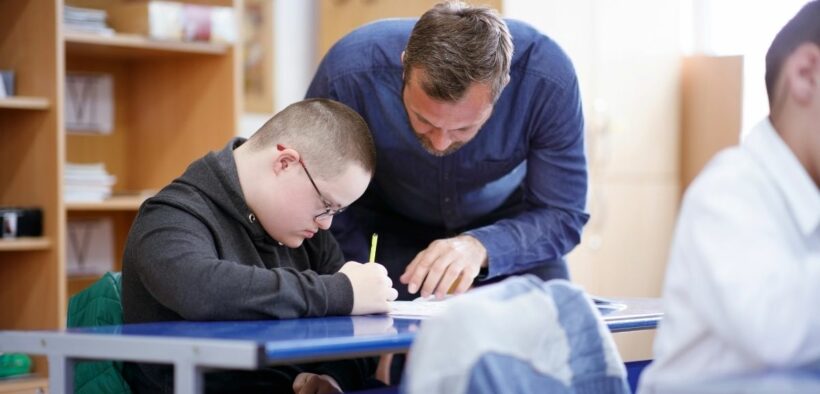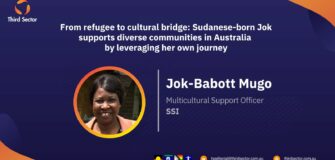Last week I listened to the morning news on the car radio. There were two stories that triggered me. The first was the news that Australia had won some medals in the Para Swimming event. The second was hearing that an autistic man who made a tweet that went viral five years ago about things we should all know about people with autism, had now published a book called ‘Untypical’ and they were a guest on the show.
I was triggered because while some may see these as wonderful signs of disability inclusion in mainstream media, to me they just remind me, yet again, which voices and stories get media attention and which ones don’t.
There’s no disputing that inclusion and representation have made absolute strides over the past five, 10 years. From television shows like Love on the Spectrum and The Good Doctor, to the rise of Dylan Alcott as a media personality.
Stories the public finds inspiring (and sometimes cute) are becoming more normal and more celebrated.
But as we tick this inclusion box, the population living with significant intellectual disability (ID) – the largest group in the NDIS – has become even less heard of.
Did you know Australians with IDs represented the country in the Virtus Games in Paris this year? Probably not.
The media wants to be seen as progressing for the better but it doesn’t know how to do that with all corners of the disability spectrum.
Just recently some of our participants attended a local school to engage in an intergenerational biography writing program – something that will normalise the interaction of young people with those living with ID from a young age.
A story that local television media thought would be “visually appealing”, until they found out no one was in a wheelchair, or articulately spoken.
If we don’t represent ALL disabilities in the media, a large flow of problems arises. It means only a fraction of voices are being heard – and they are controlling the narrative.
Maybe this seems controversial, so let me explain.
My daughter lives with an ID and is non-verbal. But her mother and I can tell you her favourite entertainer is Emma Wiggle and Alvin and the Chipmunks is running a close second on her playlist.
All Phoebe’s friends outside of family and carers also have an ID. Most of them met at her Special School and those friendships continue to be hugely important in her life.
So Phoebe’s Mother and I are carers. WE have lived experience through caring for Phoebe and it gives us a deep insight into her population and we are both working hard to help her voice be heard as she is unable to advocate for herself.
The problem is, other non-intellectual disability types have told me that I don’t have any right to advocate for Phoebe and my lived experience doesn’t count as much as say someone in a wheelchair or who is blind or deaf.
Carers like me are seen as well-meaning, but we should leave it to the advocates who have the real lived experience. Unfortunately though, some of these advocates with real lived experience are lobbying for the Government to close all the schools that Phoebe and her mates attended and control other choices in her life to achieve their inclusion goals.
These are the voices heard through our media channels, as palatable, lived experience has almost been weaponsided to exclude the voice of my daughter and others like her who are unable to do it themselves.
I am pleading with the media to take the time to tell the real story about people with an ID. It’s a wonderful community and we need you to help educate others – especially within the disability community – that one size doesn’t fit all.
People with an ID or who don’t talk and don’t write books or plays are just as interesting and important.
It’s time to get to know them. To hear their voices and if that means hearing from their carers as well, then all the better.
Dylan Alcott is awesome. We all love Dylan and he’s an Australian legend. He can do anything.
But he isn’t the whole story. And I bet his favourite entertainer isn’t Emma Wiggle.
Phil Hayes-Brown was appointed Wallara CEO in 2010 after a 20 year career spanning investment banking, commercial law and sports marketing. His career included 12 years with the National Basketball Association where he finished as MD NBA Asia in Hong Kong, and a year as a GM with the Hawthorn Football Club leading all the Club’s commercial operations.
The leap to the disability sector was primarily driven by being a carer of a family member with an intellectual disability, which caused him to reflect on what really mattered, and a growing desire to serve a social purpose. While he loved working with elite athletes and brands in major sports, it was time to take on a role which made a difference.
At the time of his appointment as Wallara’s CEO, Phil recalls knowing little about the disability sector, and whilst the learning curve was steep, he was determined to bring a fresh commercial perspective to the organisation.


































































































































































